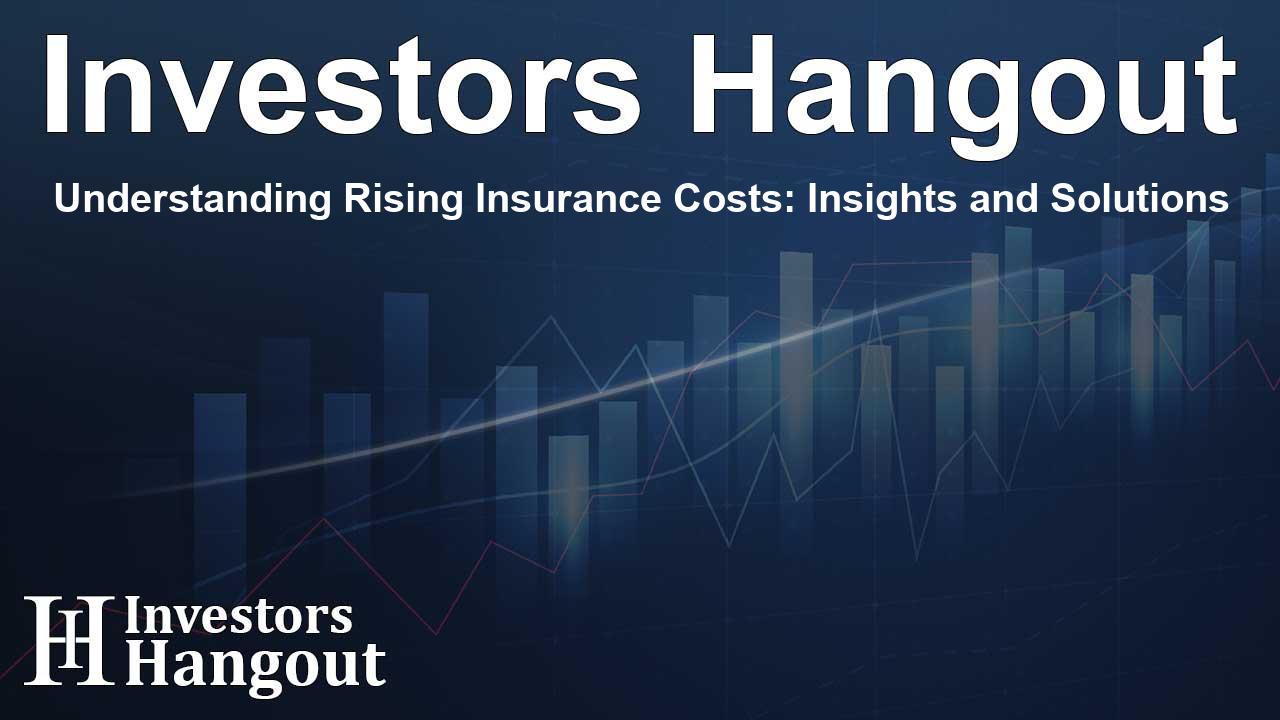Understanding Rising Insurance Costs: Insights and Solutions

Understanding the Rising Costs of Insurance
The cost of insurance is a topic of great concern for many, especially as the expenses of everyday life continue to climb. Inflation has played a significant role in shaping these costs, affecting not just consumers but businesses and communities too. David A. Sampson, president, and CEO of the American Property Casualty Insurance Association, offers valuable insights into what is causing these rising premiums and provides guidance on how consumers can navigate this challenging landscape.
The Impact of Inflation on Insurance Rates
Since 2021, inflation has left a considerable mark on various sectors of the economy. As inflation remains elevated, insurance rates have also risen in response. Insurers often adjust their rates based on previous inflation trends, and thus, the effects of earlier inflationary spikes started reflecting in insurance rates from 2022 onward. Although some states have seen a slowdown in rate hikes recently, the overall trend of increasing costs is still present.
Legal System Abuse: A Hidden Cost
Another factor driving up insurance costs stems from the legal system. A concept often referred to as the 'tort tax' burdens families with additional financial strain, costing the average household approximately $4,200 annually. This increase is due largely to the expenses associated with legal claims and the debt incurred by insurers combating these challenges. With the trial bar spending significant amounts on extensive advertising, it becomes clear that these costs are indirectly paid for by consumers.
Natural Disasters and Home Insurance
As we face more intense weather patterns and natural disasters, insurance companies grapple with heightened risk levels. A notable statistic reveals that between 2019 and 2023, nearly 290,000 new properties were established in high-risk flood zones. This trend amplifies the cost of insuring homes as insurers must evaluate the heightened risks linked to climate change. It sparks a dialogue about the importance of enforcing robust building codes that can protect homes in disaster-prone areas.
Dealing with Underwriting Losses
It's crucial to note that many insurance companies are not reaping enormous profits during these tough market conditions. In fact, insurers have suffered considerable underwriting losses, amounting to over $505.9 billion due to natural catastrophes since 2020. This considerable financial burden has caused many insurers to reevaluate their coverage strategies. In 2023, for instance, 18 states reported underwriting losses in homeowners' insurance, a significant increase compared to previous years.
What You Can Do About Insurance Costs
Given the myriad factors contributing to insurance rate increases, consumers are looking for ways to save. Understanding your specific policy and seeking discounts where available can be a proactive step. Speaking to insurance agents about the different options tailored to individual circumstances can lead to more favorable premiums. Additionally, fostering resilience through better home maintenance and risk reduction measures can be beneficial.
Insurance Navigation Tips
For residents concerned about escalating auto insurance costs, it’s essential to keep abreast of market changes and continuously seek better coverage options. Researching industry trends and being informed about the specifics of local market conditions is key. This knowledge can empower consumers to make informed decisions about their insurance needs.
About David A. Sampson
David A. Sampson has been at the helm of the American Property Casualty Insurance Association since 2007. Under his leadership, APCIA has engaged with pressing industry issues and advocated for effective regulatory practices that prioritize consumer protection. With a heritage spanning 150 years, APCIA plays an essential role in representing the interests of home, auto, and business insurers at a national level. Sampson's voice resonates across industry events and media channels, where he promotes the value of private market solutions.
Frequently Asked Questions
What factors are driving the rise in insurance costs?
Inflation, legal system abuse, and increased natural disasters all contribute to higher insurance rates, with insurers adjusting premiums in response to these pressures.
How can consumers reduce their insurance premiums?
Consumers can reduce premiums by understanding their policy, seeking potential discounts, and maintaining their property to lower risk associated with damages.
What role does climate change play in insurance rates?
Climate change increases the frequency and severity of natural disasters, prompting insurers to adjust their rates accordingly due to heightened risk.
Are insurance companies making large profits during this time?
No, many insurance companies are experiencing considerable underwriting losses due to the costs associated with natural catastrophes and other claims.
Who is David A. Sampson?
David A. Sampson is the president and CEO of the American Property Casualty Insurance Association, leading the organization in addressing key insurance challenges since 2007.
About The Author
Contact Lucas Young privately here. Or send an email with ATTN: Lucas Young as the subject to contact@investorshangout.com.
About Investors Hangout
Investors Hangout is a leading online stock forum for financial discussion and learning, offering a wide range of free tools and resources. It draws in traders of all levels, who exchange market knowledge, investigate trading tactics, and keep an eye on industry developments in real time. Featuring financial articles, stock message boards, quotes, charts, company profiles, and live news updates. Through cooperative learning and a wealth of informational resources, it helps users from novices creating their first portfolios to experts honing their techniques. Join Investors Hangout today: https://investorshangout.com/
The content of this article is based on factual, publicly available information and does not represent legal, financial, or investment advice. Investors Hangout does not offer financial advice, and the author is not a licensed financial advisor. Consult a qualified advisor before making any financial or investment decisions based on this article. This article should not be considered advice to purchase, sell, or hold any securities or other investments. If any of the material provided here is inaccurate, please contact us for corrections.
